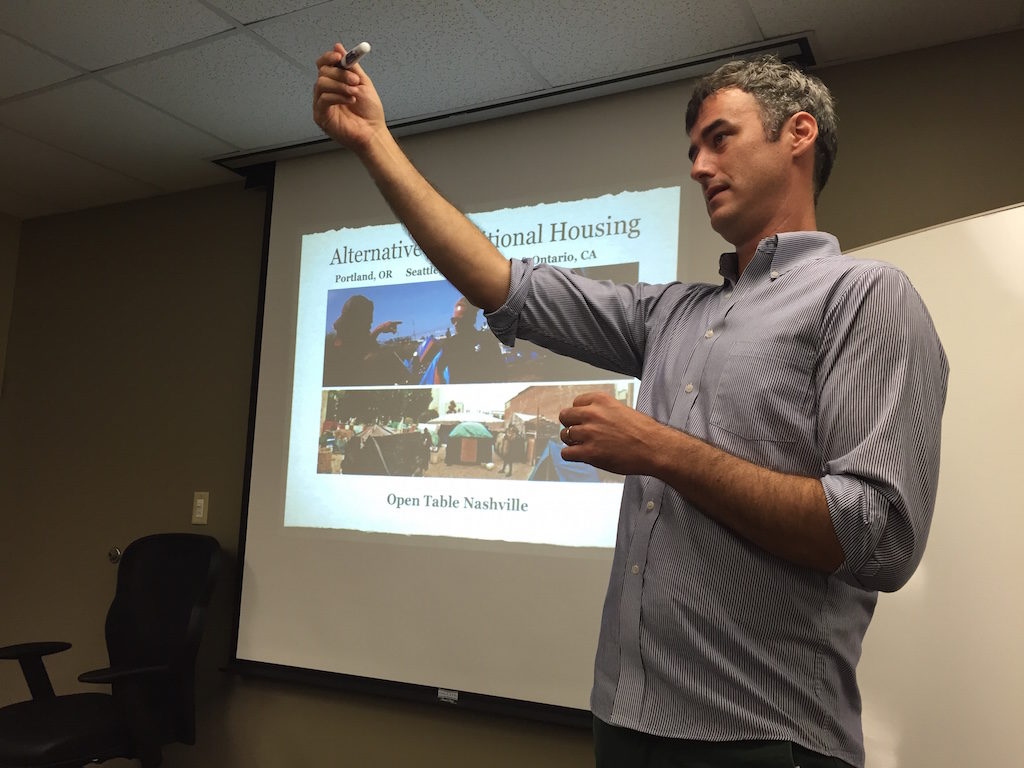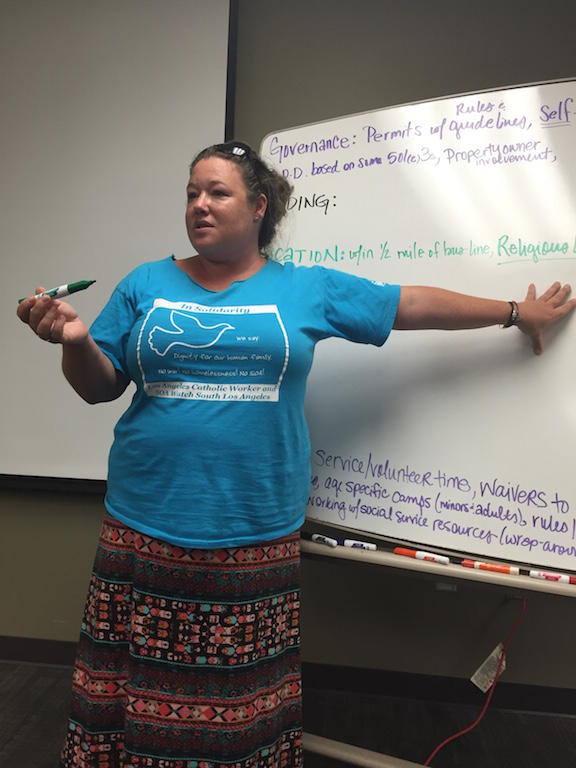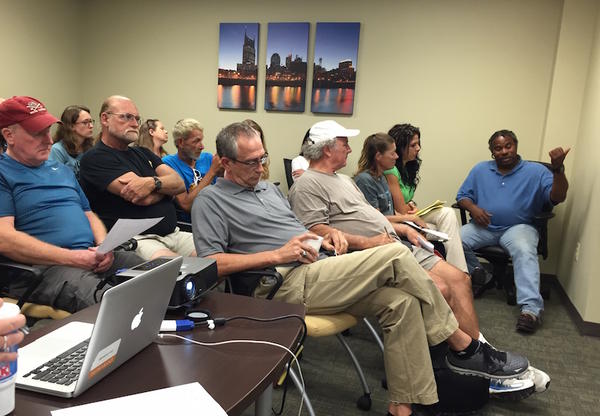
Update at 12:30 Thursday: The Metro Homelessness Commission released a “vision document” (PDF) today to inform a possible new policy for homeless encampments in Nashville. The two-page document recaps a Monday brainstorming session and officials are soliciting feedback by Oct. 8 before the next commission meeting on Oct. 13. Comments can be sent to judith[email protected].
Original story
More than 30 people — ranging from the homeless, to members of the new mayor’s administration — met Monday to discuss a possible new policy to allow camping villages in Nashville.
The brainstorming session followed closely after
the city broke up a long-running tent village on the hill between the Adventure Science Center and Fort
Negley
.
Will Connelly, executive director for the Metro Homelessness Commission, began the meeting by trying to ward off negativity about the recent conflict.
“We have a new council, a new mayor, new folks in the homelessness community that maybe have new ideas about how we approach encampments,” he said of the chance for a “fresh take.”

He also asked for thoughts about how to deal with lingering “illegal” encampments and also with a city-sanctioned option.
While the room was filled with camping proponents, they disagreed about the specific rules of a tent community — including who would be allowed, how to keep it safe, and the role of government. They talked through six categories: governance, funding, location, amenities, capacity, and requirements for residents.
Erik Cole, a staff member for Mayor Megan Barry, heard how four other cities run camps, and passionate requests to find a way to do it here.
While he and the city are far from committing to a camping plan, Cole said he’s long been inclined toward compassion when confronting homelessness, “with a keen eye on the phrase, ‘There but by the grace of God go I.’ “
A day after the meeting, Barry issued a statement about homeless encampments in public parks:
“Use of police force should be a last resort to resolving the situation of an unauthorized camp and as such I don’t anticipate the need for arrests or criminal citations. The key focus of my administration is to find alternative locations for those who are camping at Fort Negley
. I’m optimistic that by working with the homelessness commission, the homeless community and advocates, our Metro Parks, and the faith community, we can find a workable solution that realizes the fact that our public parks are not camp grounds, and they can’t be used as such.”
Large Camp Question Lingers
Six campers on the Fort Negley hill
were given citations for refusing to leave last week — but they weren’t arrested and remain there.
Yet Metro police do often choose to jail the homeless, said Chad Hindman, an assistant public defender in criminal court. He said city money would be better spent creating housing, including official campsites.
“I’ve got one guy who was in [jail] for five days because he was sleeping on the sidewalk … that’s thousands of dollars. You compare that to what it would cost to house the same person for five days in something like this … it has to be millions of dollars that I see this city throwing away.”



